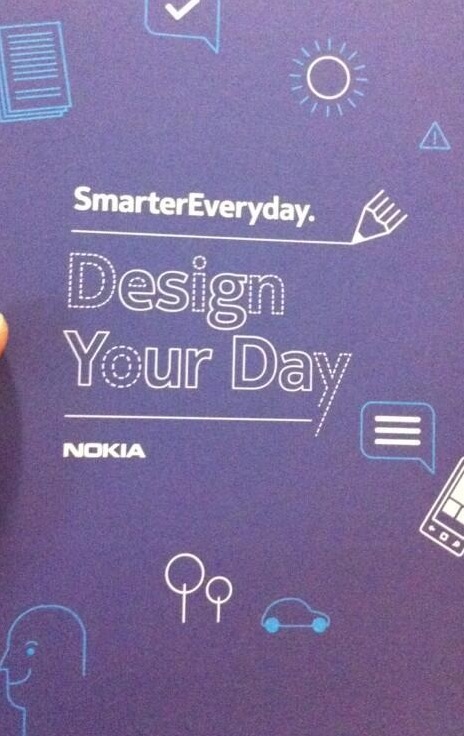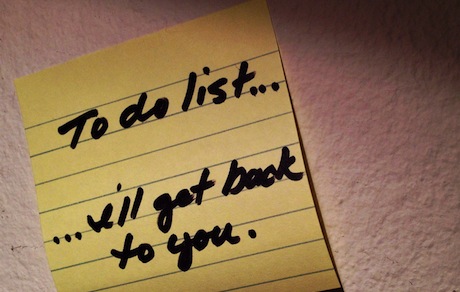Nokia and Brilliant Noise at Chinwag Psych: "If you only get 6-7 hours sleep per night, you might as well be drunk"
Chinwag Psych brought experts from advertising and marketing who were eager to share their knowledge of machine learning, psychology and neuroscience.
One highlight was seeing Nokia’s Global VP of digital and social marketing Chris Schaumann and Antony Mayfield, founder of the digital strategy agency Brilliant Noise discussing Nokia’s Smarter Everyday program.
“Smarter Everyday tries to empower our audiences to work smarter, be more productive and more efficient in our daily work,” explains Schaumann. “That's not that you need to work longer and harder but you need to be smarter about how you work.”
It offers advice along themes including mobile mastery, smart collaboration for teams and innovation as well as designing a day to be more efficient.
“The entire program not only gives you the latest in technology adoption, collaboration and other fields of interest for business, but also brings you the greatest and latest ideas from thought leaders and innovators on how to be more successful in business,” says Schaumann.
During his presentation, Schaumann had an interesting example of his own to point out how designing a day helped him be more effective and to make work a little less stressful.
“I've been in this role now for six months and I have to say that leading the global digital marketing operation at Nokia is at times quite stressful but very rewarding and a lot of fun,” he said.
“I’ve spent about 15 years in digital marketing and it's never, ever ending, the amount of change in new formats, platforms, mechanics and tactics coming into the digital marketing toolset. On one hand that's exciting, invigorating and inspiring and on the other it's also stressful.”
“Years ago I had a problem. Sometimes on Monday morning, I would wake up at 5 or 6am and I could not get back to sleep. My brain immediately switches on and starts thinking about all the things I have to do in the week that I have to memorise and I couldn’t sleep anymore.
 “So, I started to write down all of the things I needed to do on Sunday night. It is very precise and short, just bullet points. Typically I use my mobile phone and I have lists on it for all sorts of things, shopping, things I need to do and they sync with the cloud so I can see them on my PC or smart device. Just writing down those essential things on Sunday night let me sleep on Monday morning because I no longer had to worry. It is all written down and when I wake up at 8am it's still there.”
“So, I started to write down all of the things I needed to do on Sunday night. It is very precise and short, just bullet points. Typically I use my mobile phone and I have lists on it for all sorts of things, shopping, things I need to do and they sync with the cloud so I can see them on my PC or smart device. Just writing down those essential things on Sunday night let me sleep on Monday morning because I no longer had to worry. It is all written down and when I wake up at 8am it's still there.”
It’s a really simple trick for reassuring yourself and making sure you know what is happening next. There are enough events in a business that are unexpected and require handling on the spot, getting your plans in line in a handy and manageable way means that when the unexpected happens, you’ll at least have a context to start working on those new things.
Schaumann is not recommending that we all laze around in bed on a Monday morning of course. But he did point out that we should keep an eye on sleep deprivation and the detrimental effects it could have on your working day.
“Existing research says that if you only get 6-7 hours sleep per night, you might as well be drunk,” he points out. “Otherwise the decisions you make and your productivity, is really falling off the cliff. Sleep is absolutely critical. Get at least 7-8 hours sleep every night.“
Details to design your day
Schaumann handed his talk over to Antony Mayfield to get into the reasons why designing a day can be helpful. Each of the attendees at Chinwag Psych received a copy of the Nokia/Brilliant Noise Design Your Day book to take the points Mayfield was making away and apply them as they see fit.
This process is a simple model that a designer can use for problem solving. Working through discovery - researching your challenge; definition - finding language to frame your problem; development - coming up with potential solutions and prototyping and iteration which should bring clarity to design challenges.
Great stuff for designers, but these principles can be reapplied to other situations where clarity and process can help things along.
 According to Mayfield, managing time can help us to be more productive in business and that’s where these five steps can come in handy.
According to Mayfield, managing time can help us to be more productive in business and that’s where these five steps can come in handy.
“One insight we gained from researching and talking to experts in the neuroscience of work was the amount of high quality thinking time - when we are able to do our best work - is surprisingly limited. Perhaps just a handful of hours a day,” he says.
Mayfield says that managing time as a resource takes discipline and that we need to take time to design our days.
“We tend to know when we’re at our most productive,” he says. “The Design Your Day process is about creating the right conditions in your routine so that you can reach that ‘flow’ state where you’re getting your best work done as often as possible.”
“When you’re designing your day, there’s no deadline to hit or finished product to ship, so you can treat each day as a prototype (to paraphrase IDEO’s Tim Brown) and constantly improve and refine your solution, and have a ‘smarter everyday’.”
Take time to make time
If you’re run off your feet managing a business, the idea of finding time to think deeply sounds like a luxury, but Mayfield points out that it doesn’t have to be a long sabbatical.
“Observing your day more closely could be as simple as taking 10 minutes at the end of the day to think about how it went and how you’ll improve your approach tomorrow,” he explains.
Much as it might be tempting to put your feet on the desk and close your eyes, the appearance of being still in a busy working environment could be misinterpreted. So a key part of creating space to think will be down to communication.
“It might also be an idea to let your colleagues know what you’re trying to do, so that your new approach isn’t mistaken for idleness,” says Mayfield. “Making these changes is cultural, not just personal, and sharing what you’re doing could also end up having a positive effect on your colleagues by leading them to think more deeply about how they can get the most from their own days.”
Using the language of business to put time aside for this purpose also helps others understand what you are up to. As Mayfield says, “Book the time in your diary and call it a “personal performance review”. No one’s going to think that’s a waste of time.”
Accentuate the positive
Instigating change in a business can be a bit like turning a large ship around. It’s tricky, takes time and you certainly don’t want it to sink.
Mayfield says that understanding the psychology and neuroscience behind the patterns and habits we fall into can make it easier to change them.
“Another insight we gained was rather than attempting to break bad habits (very difficult, as we all know), we must focus on growing a new one to replace it,” he says.
“For instance, if you have a habit of waking up and reading email straight away (which means you start the day stressed before it has even begun), you set aside some interesting reading and get into the habit of opening that, rather than your inbox.”
Mayfield says that the ‘habit loop’ concept describes how habits start with a cue that leads you into a routine by offering a reward. He uses caffeine as an example; when we feel tired we grab a coffee, the reward is the buzz and we soon start to crave it.
“By identifying and experimenting with the cues, routines and rewards that form your habits, you will find it easier to change,” he points out. “Remember: thinking is expensive in terms of your energy – build new, effective habits to free up your mental capacity, shifting the effort of carrying out tasks from your conscious to your unconscious brain.”
Time or energy?
Time management is practically a business in itself, but in order to change our habits to be more effective and enjoyable, Mayfield questions the idea of concentrating on our schedules.
“Many of us focus on managing our time but we don’t pay as much attention to managing our energy,” he points out.
“The NeuroLeadership Group’s Paul McGinnis says that just as we wouldn’t expect our bodies to run back-to-back races, we shouldn’t expect our brains to cope with back-to-back meetings.” A point recognisable to anyone who has zoned out through fatigue in meetings.
Mayfield says that mental energy is a finite resource and that we should think about how our energy levels will change as we plan our day. If you think about the time of day when you’re feeling particularly perky and sharp, this might be a better time to schedule activities that are more challenging.
Equally, having some consideration for the limitations of the mind is also important. “Get enough breaks,” says Mayfield. “Eat the right kind of foods to keep you going and take time to relax, exercise and socialise. Neuroscience shows that these are all key to performing at our best in the long term.”
Your brain at work
Approaching business with an understanding of how the mind works can help to create methods that are stimulating and more enjoyable for managers and employees.
With so many changes in the way business is conducted and so many options as to how best a business should be run, Mayfield says that having people around with an understanding of how the mind works can be very helpful.
 “Perhaps it’s even more important at the moment,” he says. “We’re in a period of change, the digital age and the rapid adoption of mobile technology is totally revolutionising the way we work, in ways we don’t fully understand yet.
“Perhaps it’s even more important at the moment,” he says. “We’re in a period of change, the digital age and the rapid adoption of mobile technology is totally revolutionising the way we work, in ways we don’t fully understand yet.
“It’s useful for businesses to have people who understand how these changes might be affecting us mentally and can help to shape new rules for working efficiently in the connected age.”
To find out more about how Schaumann and Mayfield can help you design your day, pick up a copy of the book. It’s easy to digest and has a few interesting points to help you keep calm and carry on.
Photo (cc) vvvracer





